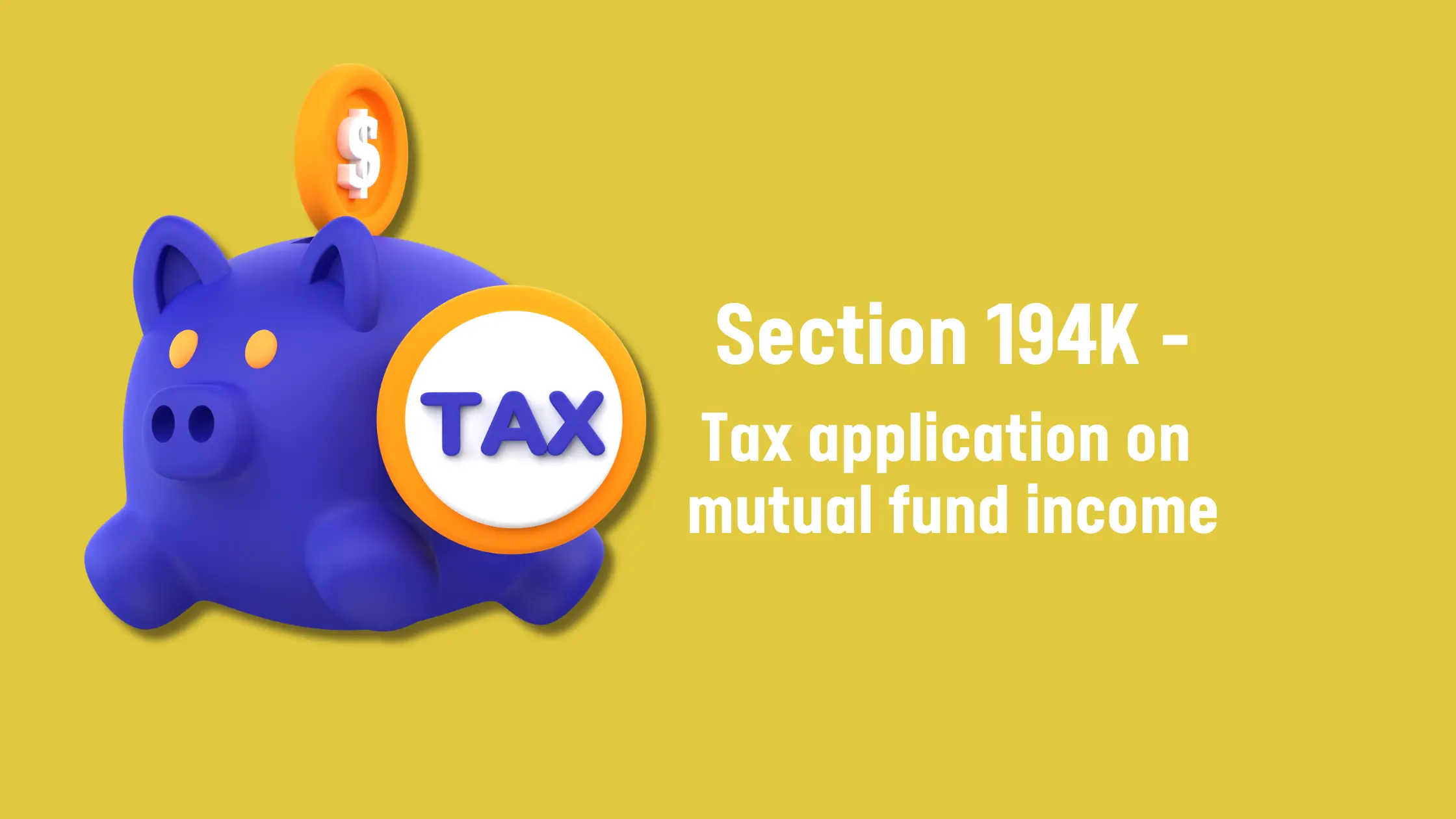Section 194K Tax Deduction On Income From Mutual Fund Units
By Filingbuddy . 10 Jun 24
Introduction
Mutual funds, a popular financial instrument, pool money from investors to invest in various assets like stocks, bonds, and gold. Asset Management Companies (AMCs) or Fund Houses manage these funds and handle investments on behalf of investors. Fund managers, specialized in investment analysis and portfolio management, make investment decisions based on the mutual fund's goals. The expense ratio, charged by the AMC for fund management, varies across mutual funds and is capped by SEBI (Securities and Exchange Board of India). SEBI, the capital markets regulator in India, promotes the mutual fund sector through regulations that benefit stakeholders and spur economic growth.What is TDS?
TDS, or Tax Deducted at Source, is a tax deduction made by businesses or individuals while making payments that exceed a particular threshold amount. The deductor is responsible for deducting TDS and depositing it with the government. In the case of income from mutual fund units, TDS is deducted under Section 194K of the Income Tax Act, 1961. Section 194K was introduced in the Finance Bill, 2020, making it mandatory for the resident investor's dividend income from mutual funds to be subject to TDS if it exceeds Rs. 5,000 in a financial year. The TDS rate is 10% on such dividends, and it applies from FY 2020–21 onwards.TDS on Income from Mutual Funds Units
Before Section 194K, dividend income from mutual funds was subject to double taxation. Companies paid Dividend Distribution Tax (DDT), resulting in taxation at two levels. With the inclusion of Section 194K, only mutual fund firms are required to withhold TDS from investors' dividend payments. Section 194K applies to any person making income payments to Indian residents for units of mutual funds as defined in Section 10 (23D), units from the Administrator, or units from a specific entity. The TDS threshold under Section 194K is Rs. 5,000. However, TDS is not deducted if the dividend income is derived from capital gains and is up to or equal to Rs. 5,000 in a fiscal year. The TDS rate under Section 194K is 10% for residents, but it increases to 20% if the payee fails to provide their PAN information. For non-residents, TDS is deducted under Section 195. TDS must be deducted at the earliest of when the money is credited to the payee's account or when the payment is made to the taxpayer. After deducting TDS, the deductor must submit the TDS return (Form 26Q) quarterly through the TRACES website. The tax credit certificate (Form 16A) must be downloaded from TRACES and provided to the deductee, who can claim TDS credit while filing their income tax return. Mutual funds offer various advantages, including professional management by fund managers, liquidity, diversification, lower investment requirements, and ease of access through online platforms. In conclusion, Section 194K mandates TDS deduction on dividend income from mutual funds exceeding Rs. 5,000 in a financial year for resident investors. This measure simplifies taxation and promotes transparency in the mutual fund sector.Secure Your Business with Expert Assistance
Fill in your details, our team is ready to assist
Related Post

How should a start-up complete ITR filing
Business entities must file their ITR annually to comply with the tax laws of their respective countries. It helps the government assess and collect the appropriate amount of income tax from taxpayers and ensures proper accountability of financial activities.
. 3 Mins.png)
5 step checklist for GST compliance in Indian Startups
Learn about how GST works. The basics of GST along with its compliances. Uncover what your business needs to keep in mind concerning GST rules and GST compliance.
. 3 min read.png)
₹20 Lakhs and Beyond: Understanding GST for Freelancers in India
Are you a freelancer or aspiring to be one? In this blog, uncover the basics of freelancing and requirements involving GST. Learn about all the exemptions, obligations, and compliances of GST for freelancers in india.
. 5 min read

